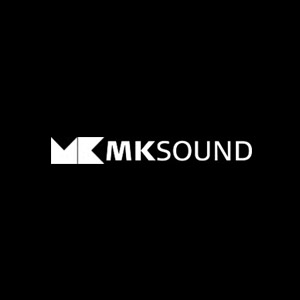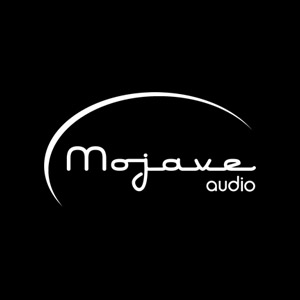What does an Audio Engineer actually do?
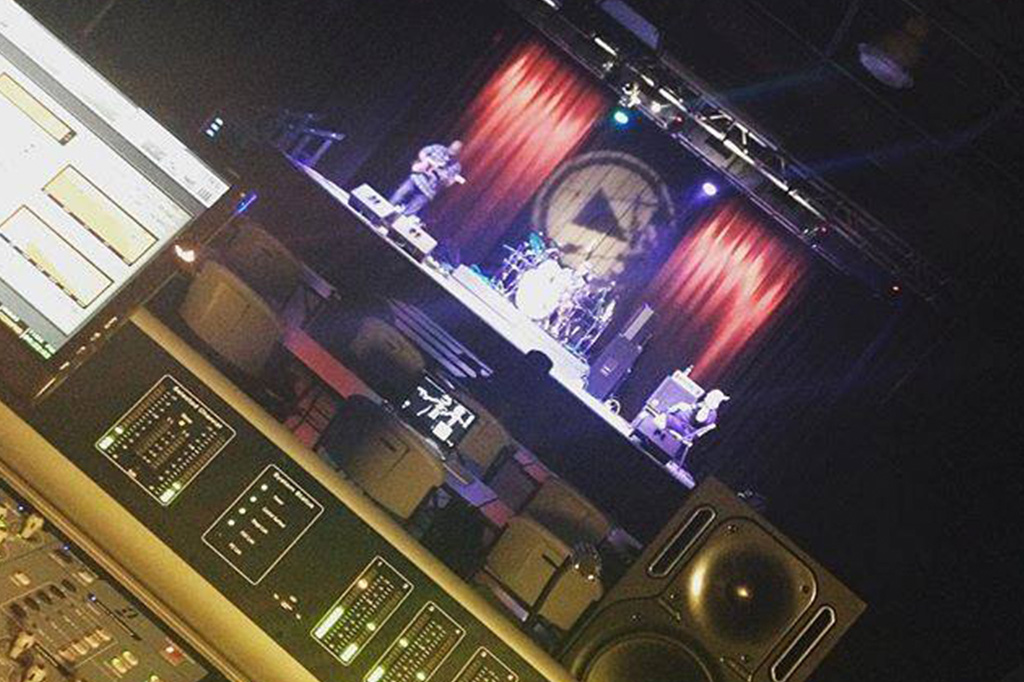
Live Sound Console View
That depends on a number of variables! The very basic idea of audio engineering is being able to get sound from one place, to another. An audio engineer needs to be able to set up mics, route signal, test equipment, add EQ or effects, and make sure the overall program is listenable.
For example, if we think about what happens at a concert – sound starts with the vocalist singing into a microphone. Where does the sound go from there? How does the crowd get to hear it coming out of speakers? What happens in-between the microphone and speaker?
When you put on a NetFlix show, and you hear your favorite actor crack a joke – how was it possible that you were:
- able to hear that joke,
- listen to it when you wanted to hear it, on demand,
- and hear it in the comfort of your own living room?
This is all possible thanks to the recording arts and sciences that allow us to capture and playback sound!
The title of audio engineer encompasses a wide range of jobs. Each niche will have its own set of skills and duties. However, many of the skills taught at the Conservatory of Recording Arts are applicable to every discipline across the board. The audio disciplines we focus on at CRAS are:
- Music Production
- Live Sound
- Broadcast Audio
- Post Production for Film and TV
- Video Game Audio
So what does an audio engineer actually do? Usually audio engineers will be the first to show up to a gig. In a live sound scenario, the engineers need to show up well before the bands arrive to make sure that the PA system is flown correctly. They also have to make sure all the cables are run from the stage to the stage boxes and mixing consoles. They will make sure all their cables are functional. They will bring enough mics to mic up all the instruments, as well as some extras in case something happens. Finally, they will come up with a game plan for how to route the signal during the concert, which could possibly include running lighting as well.
Many bands will have a sound guy who tours with them. A touring sound guy will know the band’s set, know when to cue special effects or set changes. This can be invaluable in making the best performance possible. Knowing how to sync and trigger delays and reverbs, when to perform mutes and cuts, when to bring up the lead vocalist’s mic level and when to bring the guitar solo up are all little tips and tricks that audio engineers use to make the concert much more dynamic.
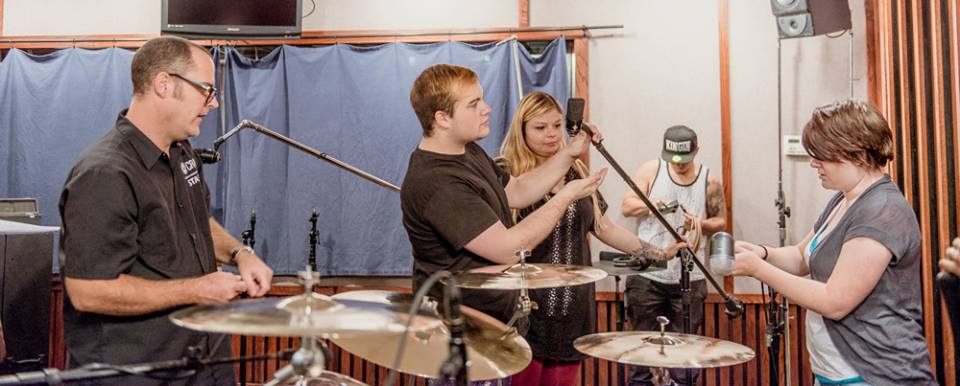
Microphone selection can make or break a recording. Often times people see the job of the recording engineer as being pretty simple – just put a mic by the instrument, plug it in and call it a day. But there is so much more than that! Using a dynamic mic can give some depth to a guitar amp, but using a ribbon mic can really bring the shine out in the upper frequency ranges. Moving a mic just an inch towards or away from a guitar cab can dramatically change the sound.
These placement techniques are the key to getting unique recordings. The tricky part is that you can’t just memorize optimal mic positions. There are some general rules to follow, but it does take a creative ear to figure out which position is the best. Each recording session is unique, and you want to allow the band to express their sound as creatively as possible. This means we want to get as creative as possible with our mic setups as well.
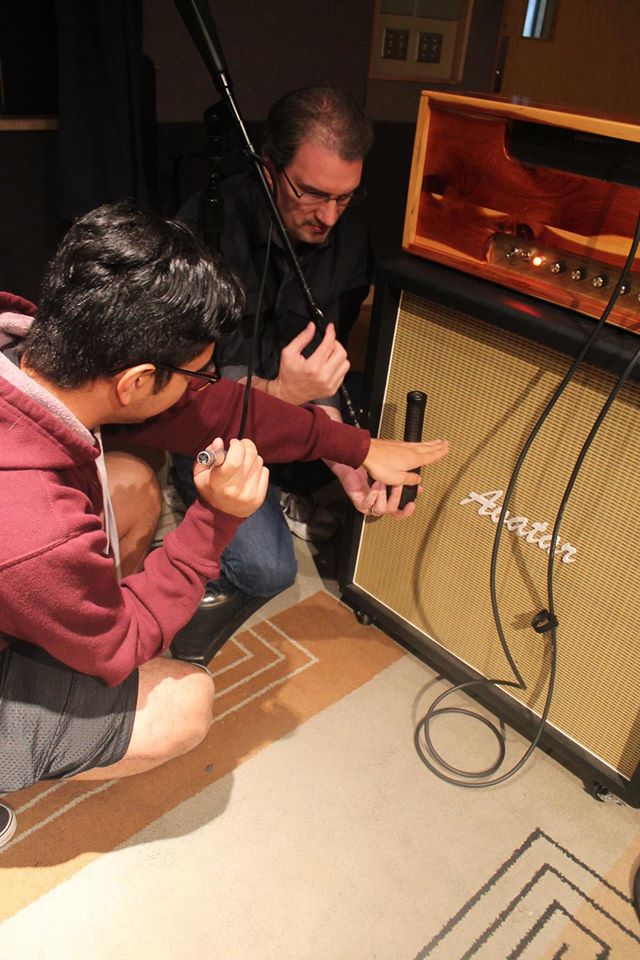
What about drum mics? Should we spot mic every drum? Or should we just use a set of stereo overheads? What about close miking just the snare and the kick, and then using a spaced pair of condenser mics at knee high level? Maybe we can use a really cheap mic as a room mic to get a great lo-fi sound… The creativity goes on and on. This is where the CRAS hands-on education really shines.
Students at the Conservatory get to take part in numerous real recording sessions with actual studio musicians. 7 weeks into the CRAS program, students get to work on their first recording session – a drum clinic.
During this clinic, students get to see how much work audio engineering can actually be. It’s quite commonplace to have 20 microphones set up for a single session. With that many mics, there are a ton of things that could possibly go wrong as well. That’s where the “engineering” part comes into play.
Engineering is all about taking what you know, applying it to what you don’t know, and figuring out a solution. It is the audio engineer’s responsibility to be able to figure out any problem that arises in a recording situation. In many cases, audio engineers take matters into their own hands – literally – by fixing and soldering broken equipment.
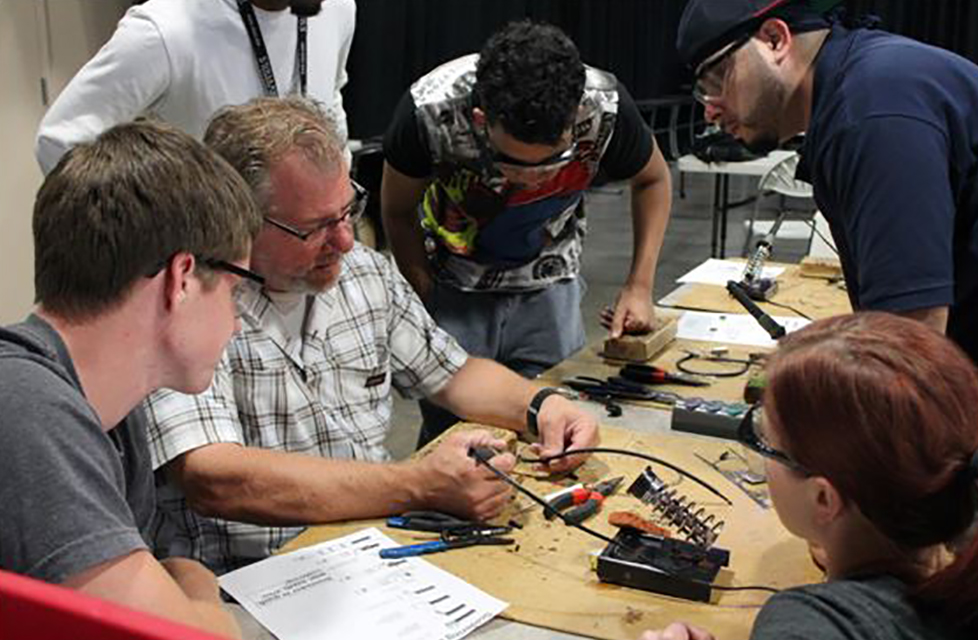
In the picture above, CRAS instructor Jim Bender is demonstrating soldering. This is perhaps one of the most important skills for an audio engineer to have. Being proficient at soldering allows you to repair commonly used gear, and minimize the amount of downtime experienced from broken gear. It’s one thing to know how to run equipment, but if you know how to fix equipment, that’s true engineering!
Audio engineers are responsible for making everything work in a musical session. They run the cables, set up the mics, configure the mixing console, route signal, create headphone mixes, add effects, mix, edit, bounce final mixes, burn CDs and tear down the sessions.
Here’s a short list of types of engineering jobs in the audio field:
- Acoustics/Design
- ADR (Dialogue recording for film)
- Car Audio
- Church Audio
- Commercials TV Radio
- Corporate Presentations
- Field Recording: Sound Libraries, Bio Acoustic Research; Nature Sounds
- Foley Engineer/Editor
- Forensic Audio
- Gaming (PC/Mac, Console, Apps, Mobile)
- Internet Radio
- Installation: Equipment, Sound Systems, Home Theaters, Maintenance & Repair
- Live Performances
- Mixing Engineer
- Movie Audio
- Music Composition
- Music Therapy
- Post-Production Engineer
- Studio Recording Engineer
- Sound Design
- Sound Effects
- Speech Recognition Education and Development
- Sporting Events and Broadcast
- Television/Radio Broadcast
- Theater Performances
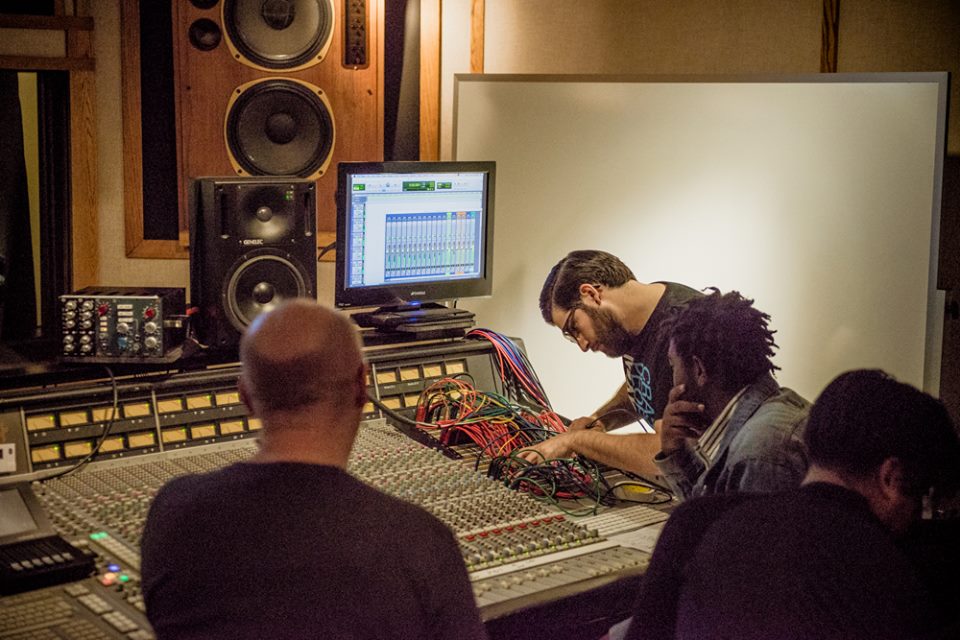
Audio engineers should also have a set of ‘soft skills’ for making their clients happy. Audio engineering is a service job. The happier your client is, the better music they make, so it’s in the engineer’s best interest to have a happy client. Having their favorite drinks, or customizing the studio to feature their favorite colors, or having the right scent of incense burning when they arrive for their session; all of these are little touches that can really make a big deal in a recording session!













